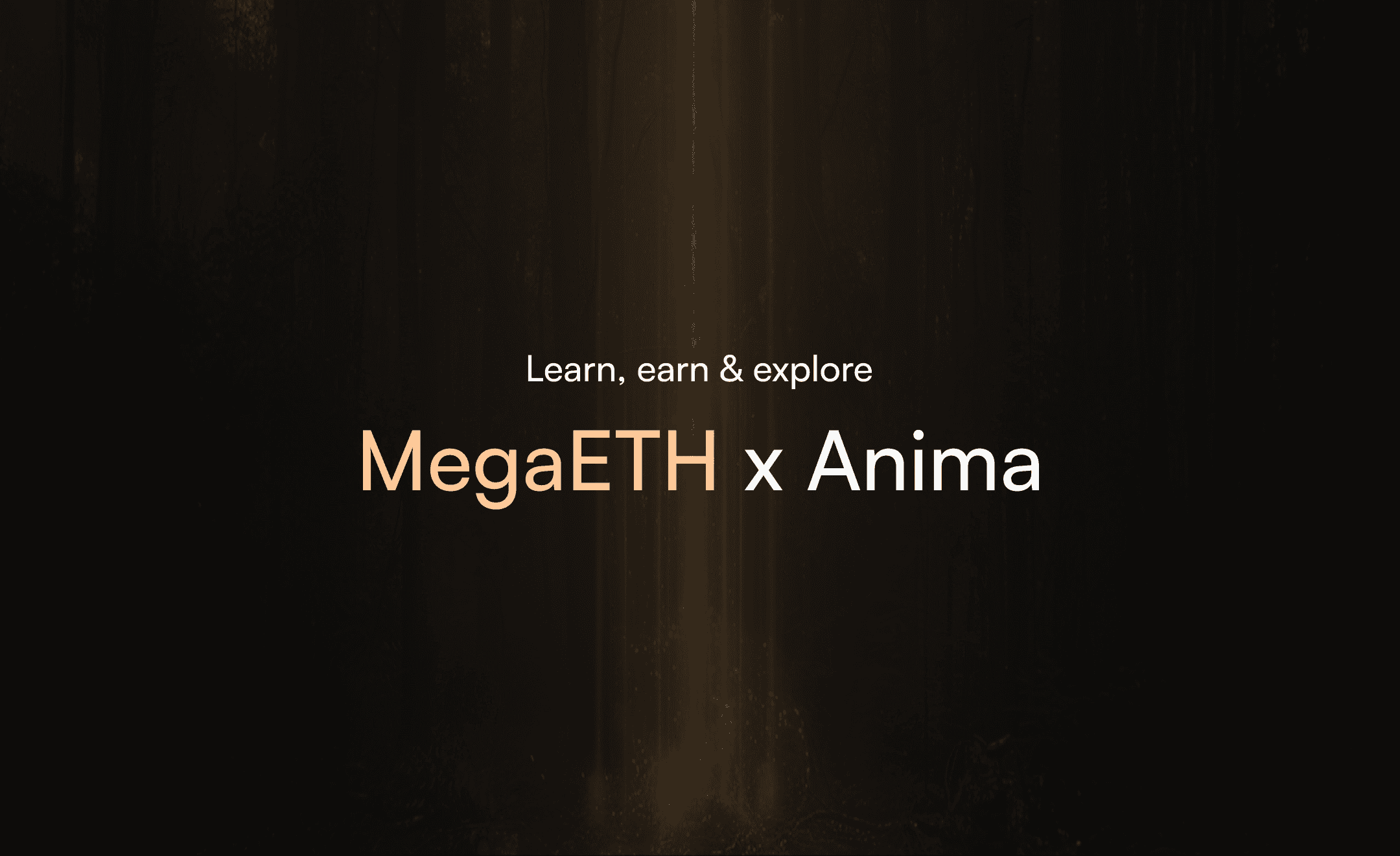Onchain reputation: Anima protocol's approach
Current decentralized identity solutions are siloed, tied to specific dApps, wallets, or chains, limiting their adoption. The creation of new identities for each ecosystem is not user-friendly, prevents the creation of a global onchain reputation, leads to the multiplication of data, and adds complexity in maintenance, especially in a decentralized environment where users must manage it themselves.
3 min
read





Onchain reputation: Anima protocol's approach
Understanding Web3 identity
The concept of identity in Web3 remains unresolved. Current Web3 identity solutions often adapt Web2 concepts and focus on compliance. These methods rely on KYC, using ID documents that are not inherently useful for crypto applications. Current decentralized identity solutions are siloed, tied to specific dApps, wallets, or chains, limiting their adoption. The creation of new identities for each ecosystem is not user-friendly, prevents the creation of a global onchain reputation, leads to the multiplication of data, and adds complexity in maintenance, especially in a decentralized environment where users must manage it themselves. This approach does not respect the Web3 ethos of privacy, as current Web3 identity is often based on KYC.
The Sybil attack challenge
In Web3, wallets act as user identifiers. Yet, because of chain interoperability, convenience, and privacy, users have to create and manage multiple wallets. This flexibility, while beneficial, opens the door to Sybil attacks. This undermines the integrity of various Web3 applications such as:
Airdrops: Attackers create multiple wallets to claim more tokens, diluting the value for genuine users.
Voting: In decentralized governance, Sybil attacks can skew voting outcomes by artificially inflating the number of votes. To counter this, voting power is often tied to asset value, which favors wealthier participants but limits broader involvement.
DeFi: Duplicate identities can exploit lending and borrowing protocols, causing financial instability and potential loss of funds.
Social interactions: Bots and duplicate users can flood social platforms, undermining trust and genuine engagement.
Capital is Sybil resistant by design and often used as a privacy preserving way to address the bot issue. However, it also excludes users with fewer resources, creating a barrier to broader participation.
Onchain reputation
Onchain reputation measures the trustworthiness and credibility of a wallet or address on a blockchain. It is similar to a digital credit score, based on past transactions, interactions, and contributions. Higher positive interactions lead to a higher reputation score. This system helps establish trust among blockchain participants, facilitating easier and more secure transactions and collaborations.
Anima focuses on the uniqueness of participants behind each activity, not just tallying scores based on wallet activity. Our Proof of Personhood technology ensures users are unique without requiring personal information. This maintains privacy while fostering a trust-based, bot-free environment.
But defining onchain reputation is a real challenge: how to ensure a comprehensive and unbiased approach? How do we avoid favoring one ecosystem over another? This definition cannot be centralized—it must be a collaborative effort.
Moving forward with Anima Guardians
We propose creating 'Anima Guardians' to define onchain reputation transparently and democratically. These Guardians will ensure a community-driven approach to trust. Criteria for becoming Guardians will include holding a Reputation NFT, among other factors.
We are considering delegating the election of Guardians to trusted third parties within the crypto community. This delegation aims to bring diverse perspectives and maintain neutrality. Trusted communities, known for their integrity and influence, can help ensure a broad and fair representation in the selection process.
Establishing a selection process is crucial to have a well-rounded panel of Guardians. This process will involve:
Nominations: Community members can nominate candidates based on their contributions and reputation within the ecosystem.
Voting: Using a secure, transparent voting mechanism to elect Guardians from the nominated candidates.
Criteria Evaluation: Ensuring candidates meet the necessary criteria, including holding a Reputation NFT and demonstrating a commitment to decentralization and community values.
By involving various stakeholders and trusted communities, we aim to create a robust and inclusive system for defining onchain reputation. This collaborative approach will help build a more resilient and trustworthy Web3 identity framework.
Onchain reputation: Anima protocol's approach
Understanding Web3 identity
The concept of identity in Web3 remains unresolved. Current Web3 identity solutions often adapt Web2 concepts and focus on compliance. These methods rely on KYC, using ID documents that are not inherently useful for crypto applications. Current decentralized identity solutions are siloed, tied to specific dApps, wallets, or chains, limiting their adoption. The creation of new identities for each ecosystem is not user-friendly, prevents the creation of a global onchain reputation, leads to the multiplication of data, and adds complexity in maintenance, especially in a decentralized environment where users must manage it themselves. This approach does not respect the Web3 ethos of privacy, as current Web3 identity is often based on KYC.
The Sybil attack challenge
In Web3, wallets act as user identifiers. Yet, because of chain interoperability, convenience, and privacy, users have to create and manage multiple wallets. This flexibility, while beneficial, opens the door to Sybil attacks. This undermines the integrity of various Web3 applications such as:
Airdrops: Attackers create multiple wallets to claim more tokens, diluting the value for genuine users.
Voting: In decentralized governance, Sybil attacks can skew voting outcomes by artificially inflating the number of votes. To counter this, voting power is often tied to asset value, which favors wealthier participants but limits broader involvement.
DeFi: Duplicate identities can exploit lending and borrowing protocols, causing financial instability and potential loss of funds.
Social interactions: Bots and duplicate users can flood social platforms, undermining trust and genuine engagement.
Capital is Sybil resistant by design and often used as a privacy preserving way to address the bot issue. However, it also excludes users with fewer resources, creating a barrier to broader participation.
Onchain reputation
Onchain reputation measures the trustworthiness and credibility of a wallet or address on a blockchain. It is similar to a digital credit score, based on past transactions, interactions, and contributions. Higher positive interactions lead to a higher reputation score. This system helps establish trust among blockchain participants, facilitating easier and more secure transactions and collaborations.
Anima focuses on the uniqueness of participants behind each activity, not just tallying scores based on wallet activity. Our Proof of Personhood technology ensures users are unique without requiring personal information. This maintains privacy while fostering a trust-based, bot-free environment.
But defining onchain reputation is a real challenge: how to ensure a comprehensive and unbiased approach? How do we avoid favoring one ecosystem over another? This definition cannot be centralized—it must be a collaborative effort.
Moving forward with Anima Guardians
We propose creating 'Anima Guardians' to define onchain reputation transparently and democratically. These Guardians will ensure a community-driven approach to trust. Criteria for becoming Guardians will include holding a Reputation NFT, among other factors.
We are considering delegating the election of Guardians to trusted third parties within the crypto community. This delegation aims to bring diverse perspectives and maintain neutrality. Trusted communities, known for their integrity and influence, can help ensure a broad and fair representation in the selection process.
Establishing a selection process is crucial to have a well-rounded panel of Guardians. This process will involve:
Nominations: Community members can nominate candidates based on their contributions and reputation within the ecosystem.
Voting: Using a secure, transparent voting mechanism to elect Guardians from the nominated candidates.
Criteria Evaluation: Ensuring candidates meet the necessary criteria, including holding a Reputation NFT and demonstrating a commitment to decentralization and community values.
By involving various stakeholders and trusted communities, we aim to create a robust and inclusive system for defining onchain reputation. This collaborative approach will help build a more resilient and trustworthy Web3 identity framework.
Our latest articles














